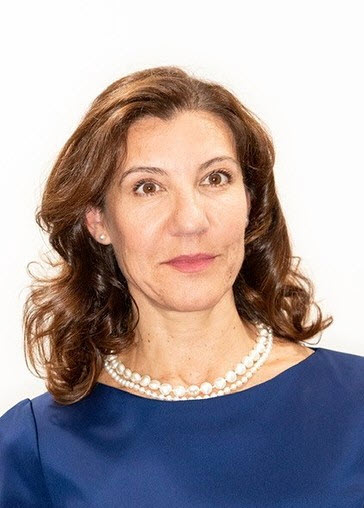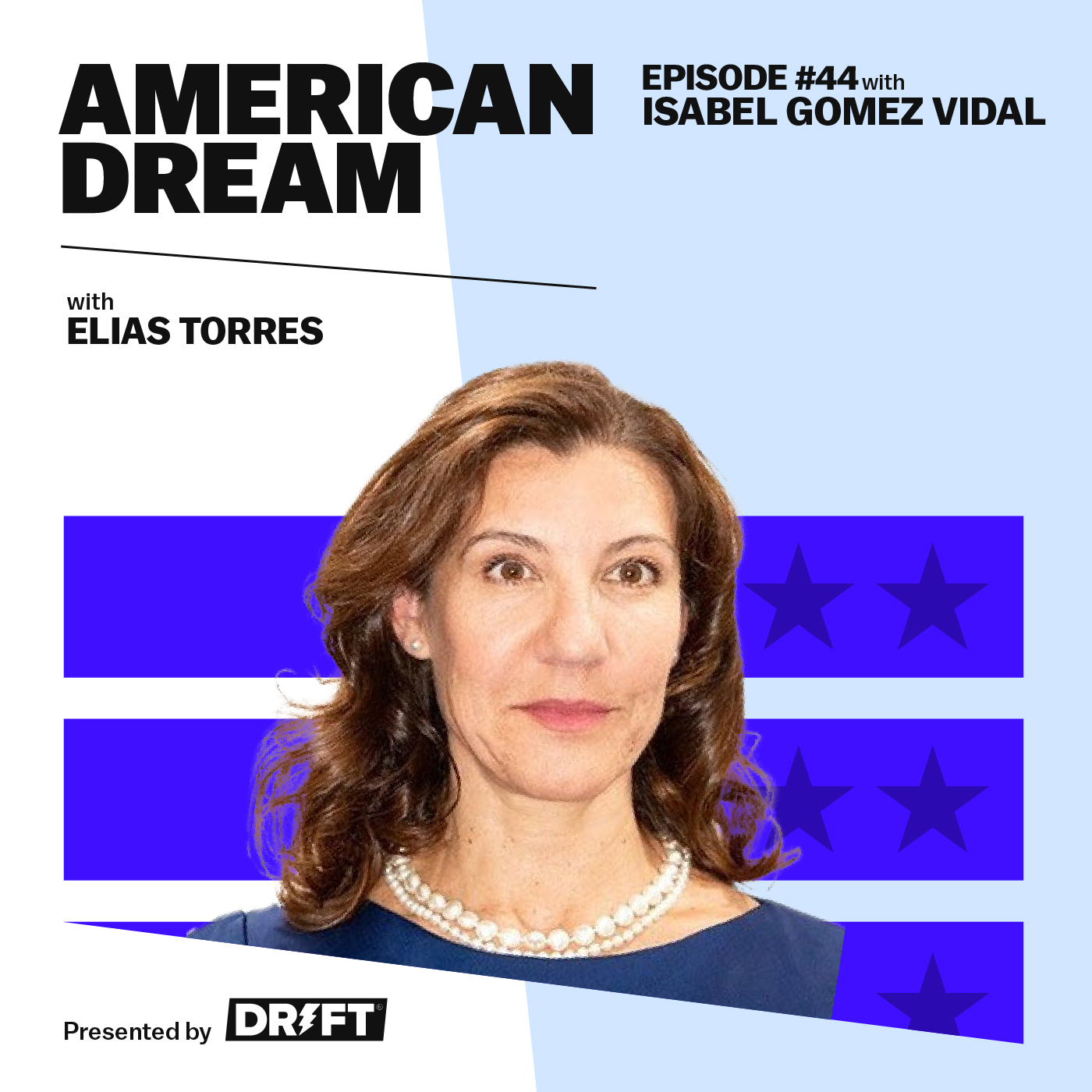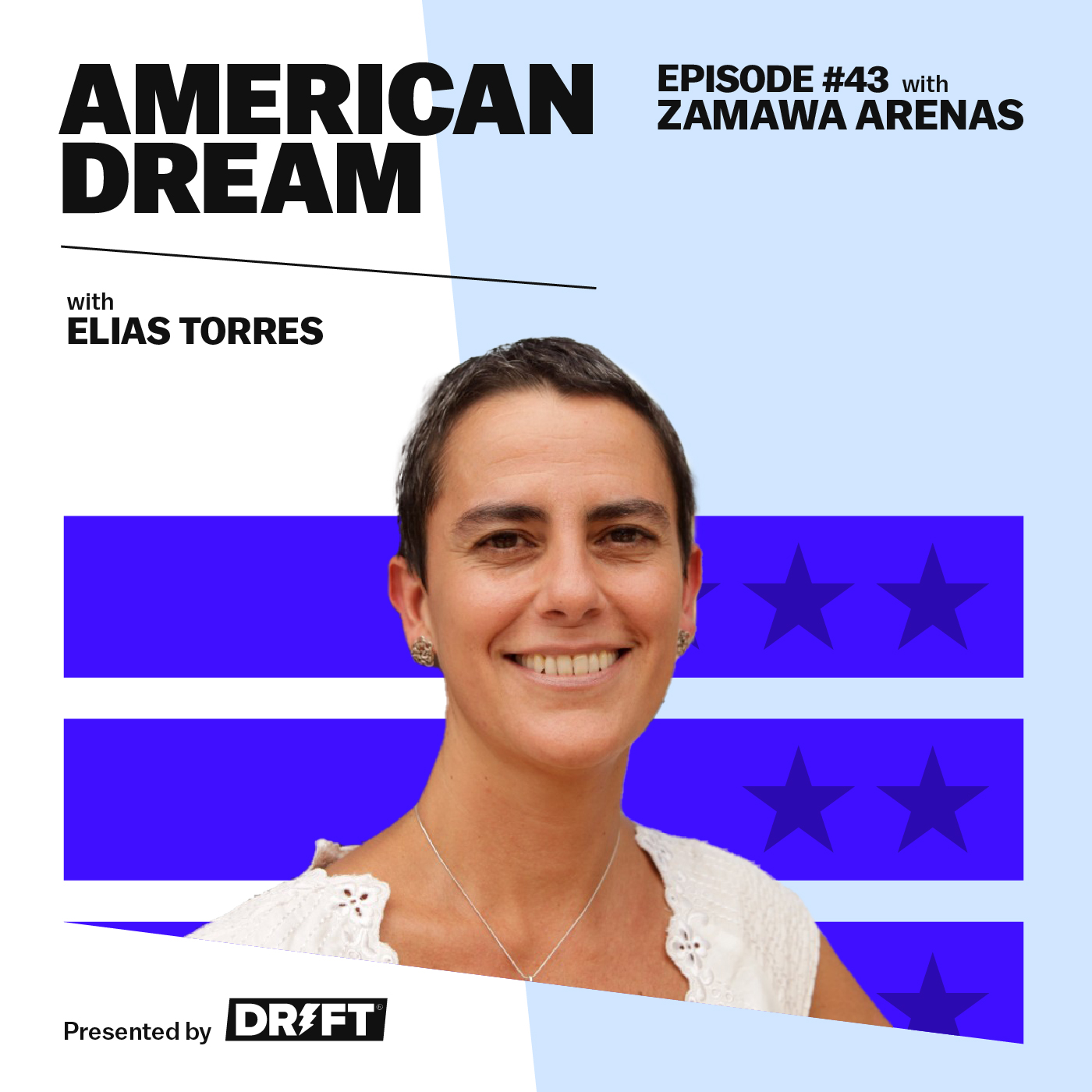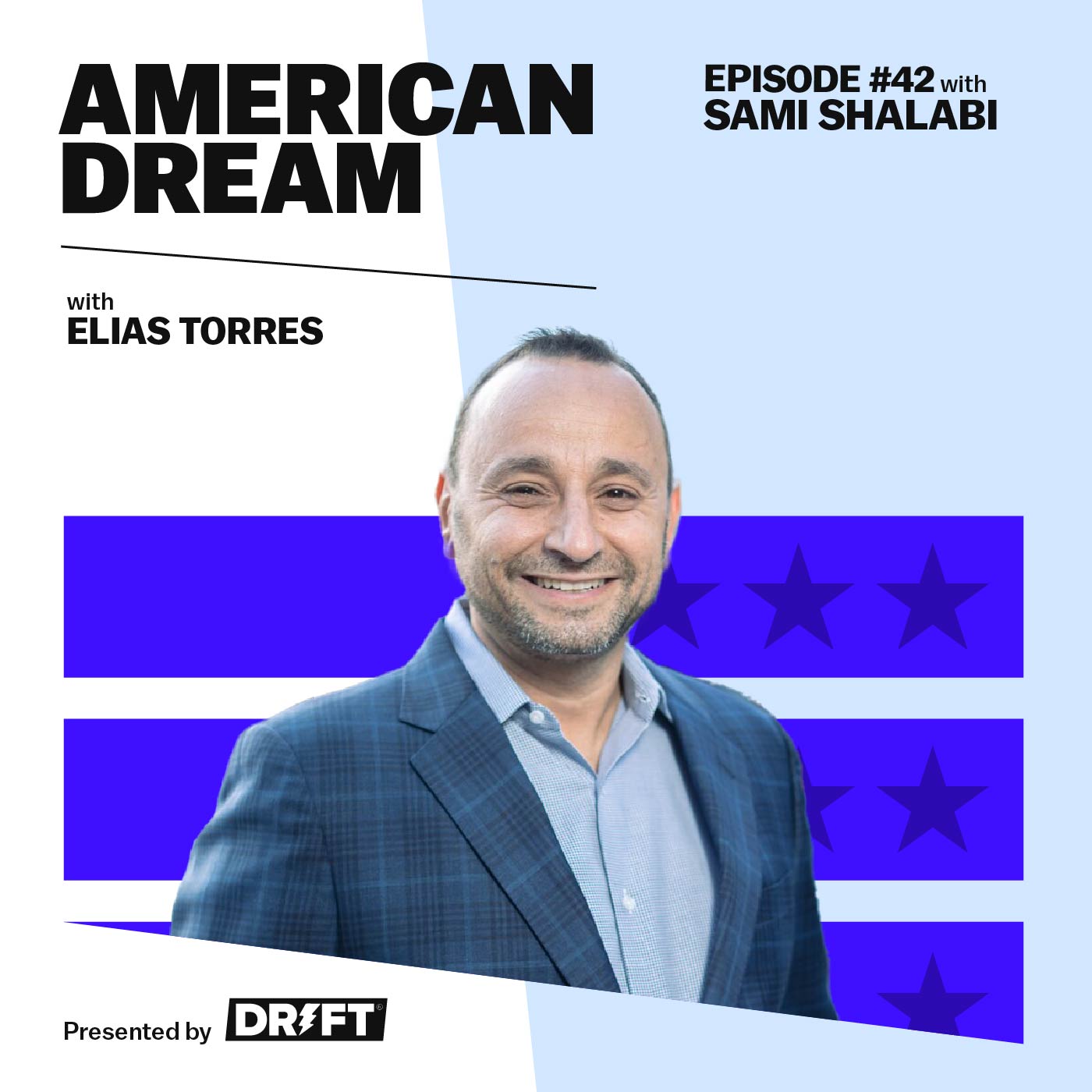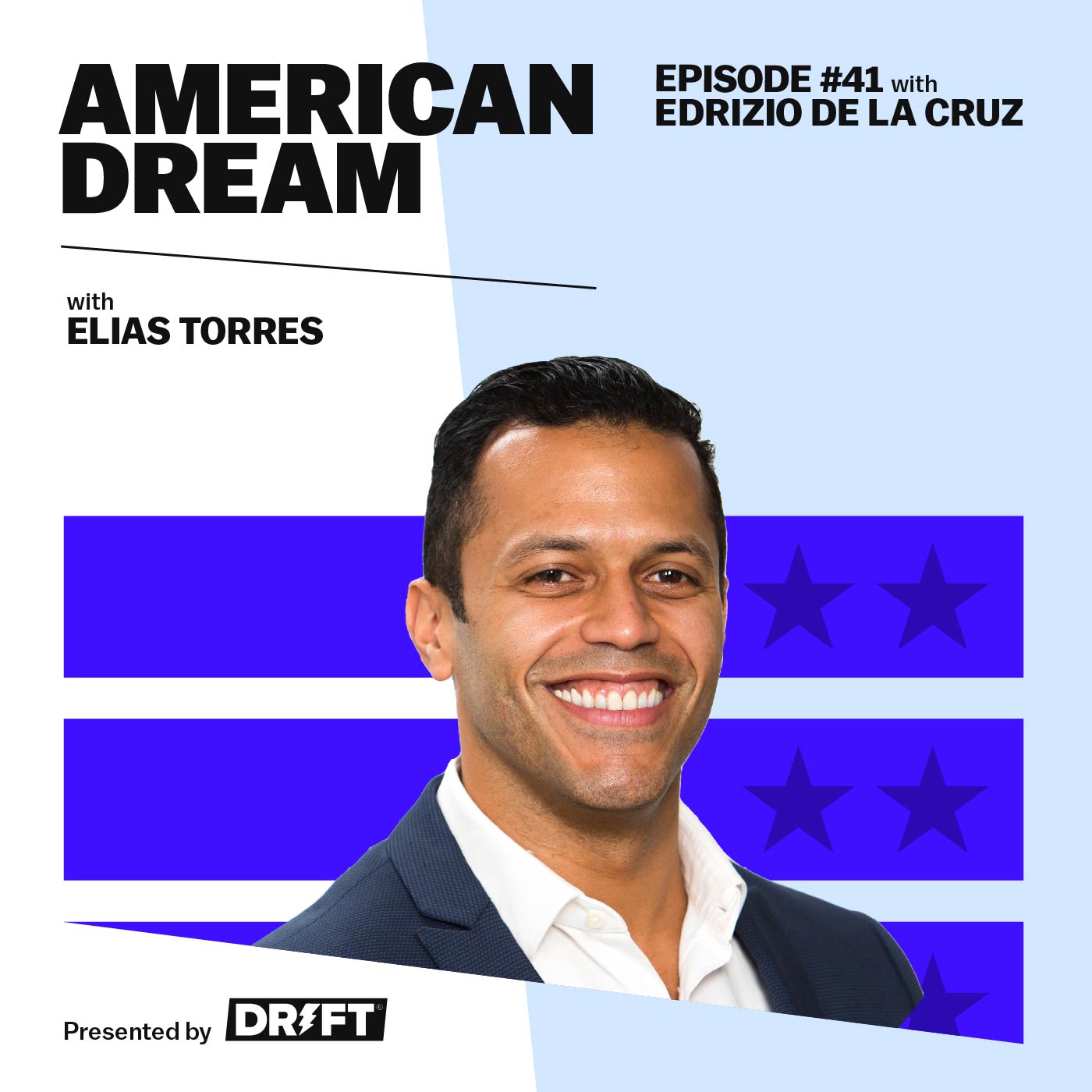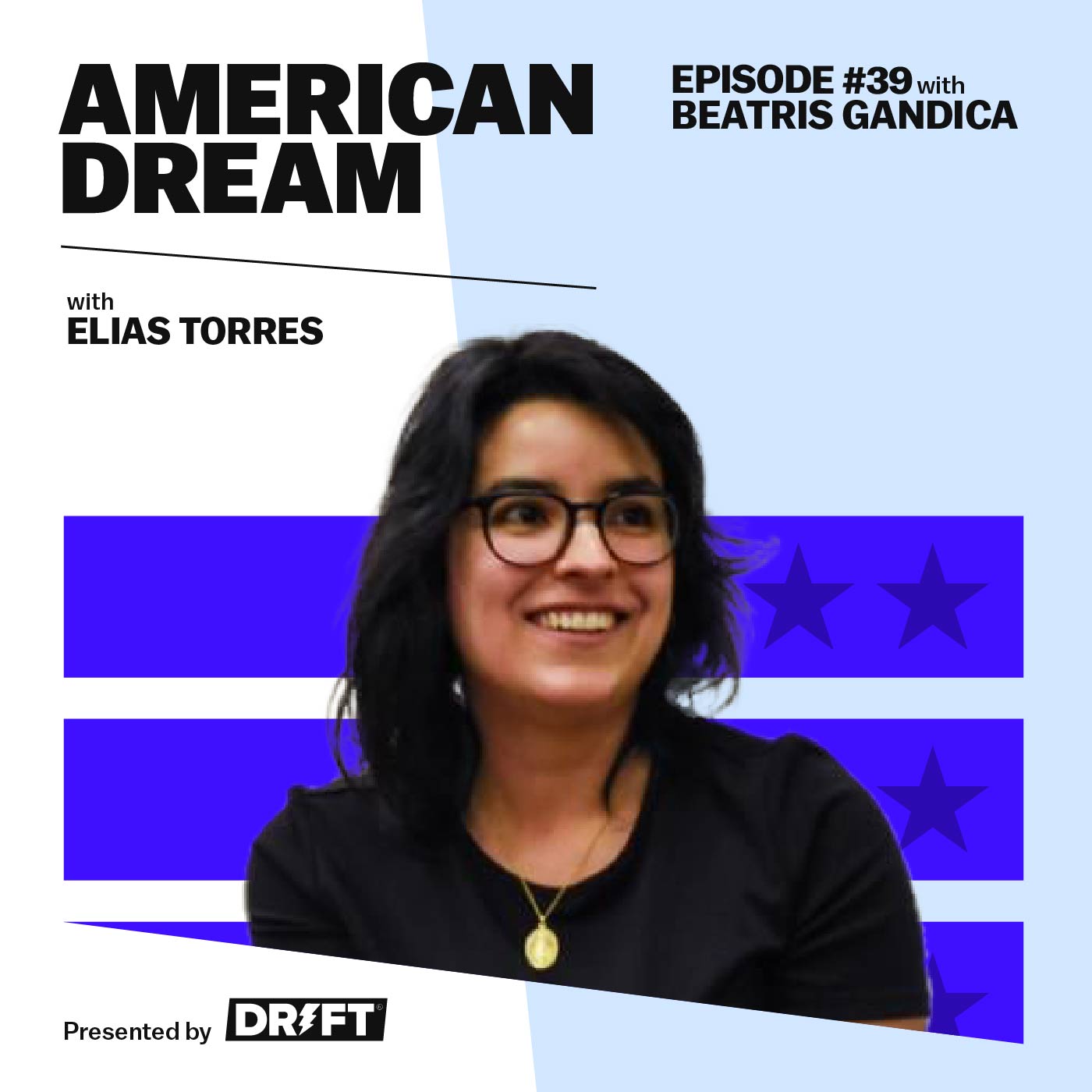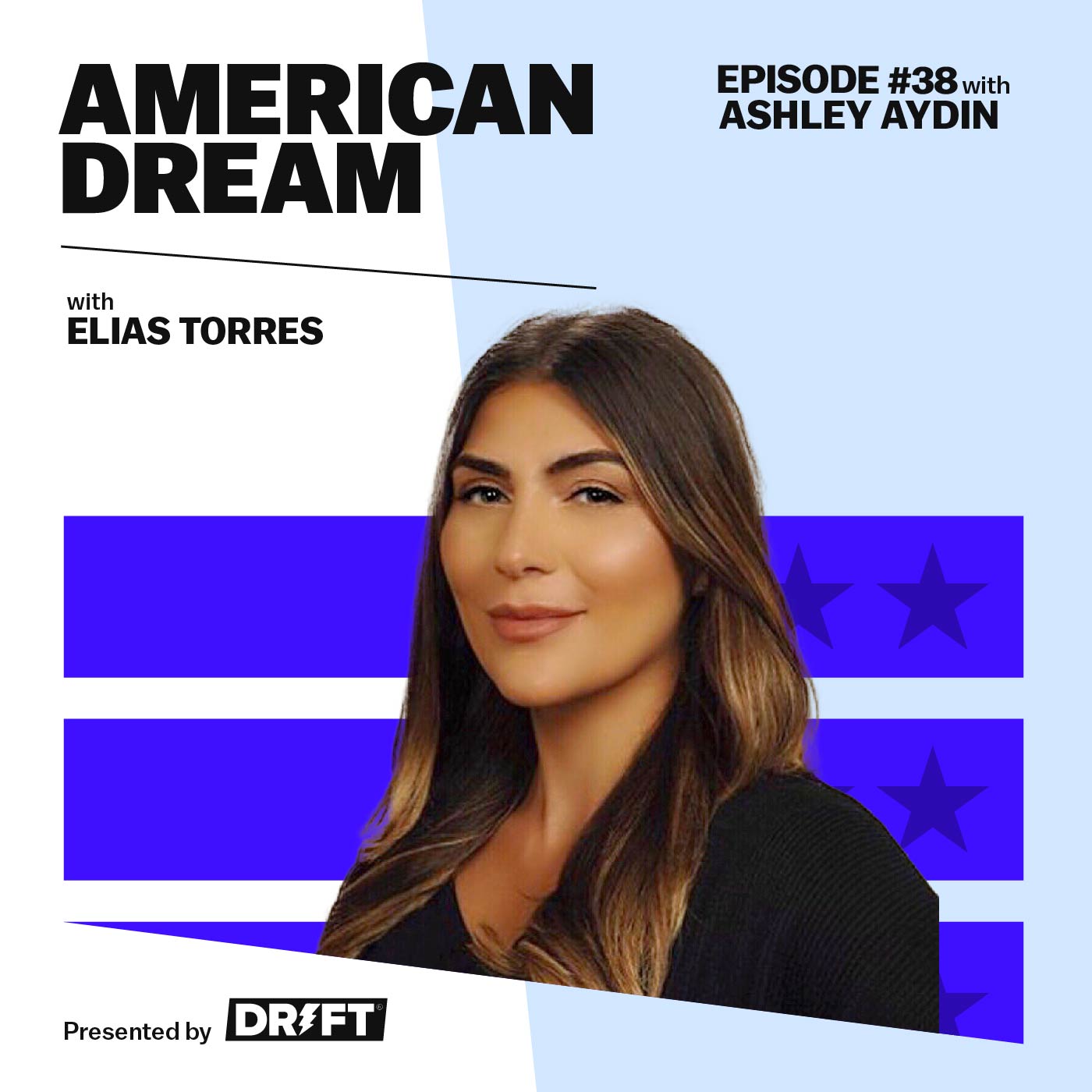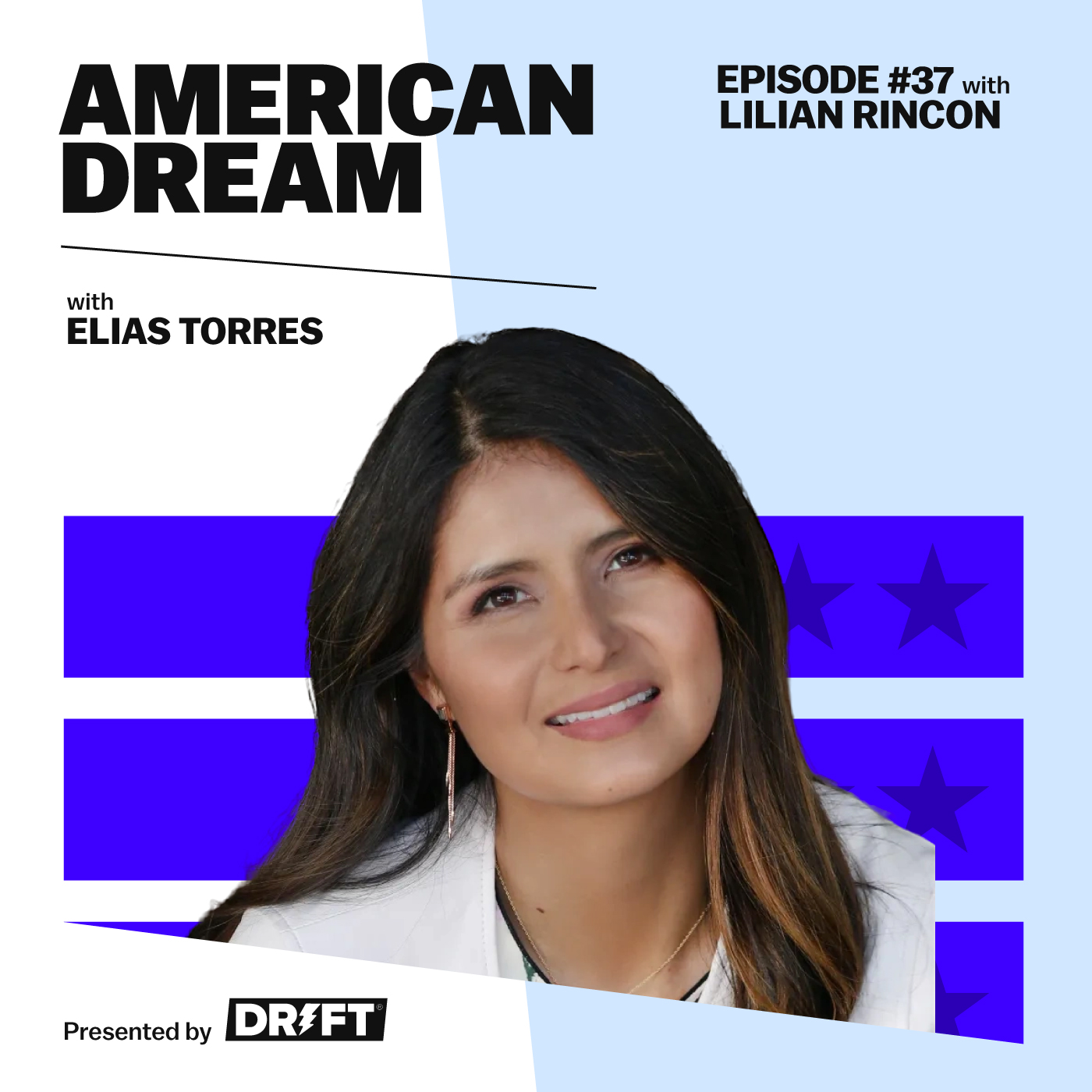Here are the Stepping Stones to Successful Career Progression (with Isabel Gomez Vidal, Chief Revenue Officer of Moody’s Analytics)
- 0.5
- 1
- 1.25
- 1.5
- 1.75
- 2
Elias Torres: Hola, I'm Elias Torres, co- founder and CTO of Drift. You are listening to The American Dream podcast. Did you know that Drift is part of just 2% of VC- backed startups led by Latin American founders? Well, I'm on a mission to change that. On this show, you will hear from leaders who have achieved their own version of The American Dream. We'll talk about what the process looked like to get there, the obstacles they faced along the way, and the work we still have to do to build the new face of a diverse Corporate America. Foreign language to another episode of The American Dream podcast. Today, I'm excited to have Isabel Gomez Vidal, chief revenue officer of Moody Analytics, part of the executive council on the show today. Isabel has risen to the ranks at Moody's. She started as a senior sales manager, director, in their London office before moving to New York City and taking on this executive position. Today, we're going to talk about what journey looked like and how more people like her can do it. Isabel, thank you so much for being on the show.
Isabel Gomez-Vidal: Thank you so much for having me, Elias. I'm thrilled to be here and I'm looking forward to our conversation.
Elias Torres: I love showcasing stories of underrepresented Spanish- speaking immigrants, Latinos. And Spaniards today, you're from Spain.
Isabel Gomez-Vidal: That's right. That's right.
Elias Torres: Espanola. Congratulations, very impressive. CRO of a public company. Rose through the ranks. Came from the outside and coming and running the whole company globally. What a big task. Tell me a little bit about that journey from a career perspective, I'd love to hear more.
Isabel Gomez-Vidal: Let me go back in time. Most of my professional career has taken place in London, and I moved to London to join Citibank as part of an internship program. And what was supposed to be a six months assignment ended up being a much longer time and ended up being... staying in London for most of my professional career. Since then, I had a number of wonderful opportunities with other global organizations in the financial service industry. So I joined a small boutique consulting firm in London for a couple of years. Then I worked at FIS. And then fast forward in 2007, I found Moody's. And so a year after I joined Moody's Analytics as a legal entity was created to bring under one umbrella all the businesses and all the assets that are non- related businesses. And that's really when my Moody's Analytics journey started. So since the formation of MA, Moody's Analytics, I experienced huge and significant growth both organically, as well as through a lot of the mergers and acquisitions, with an eye to adding more value to our customers and extending our value proposition and new capabilities into adjacent markets. And so Elias, when I reflect on the last 15 years, I had a number of leadership roles in growth revenue- related roles. So I started, as you said, as a sales manager in London and managing a team of relationship managers in Europe. And then as the business grew, I took the role of managing director heading the enterprise resolution business, which includes all the components that make our end- to- end risk management framework. Then fast forward in 2013, I was promoted to run Europe, Middle East, and Africa sales organization across all products and services. And then fast forward 2017, I was appointed to a global role as head of sales and customer service. And as part of that, I relocated to New York with my family. So I met that transition five years ago. My husband is originally from the U. S. which made the transition easier and so that has worked pretty well for us. And then most recently, as part of the changes in the organization, a couple of years ago I was appointed chief revenue officer across Moody's Analytics part of the executive team overseeing, as you mentioned, $ 3 billion in revenue. Really responsible for all revenue streams, both organically and inorganically. That includes go- to market activities, thinking about new areas of growth, and creating alignment across all the operating units. I tell you, it's been such a wonderful journey and I enjoyed every minute of it.
Elias Torres: I have so much respect for you. Running a business here at Drift and understanding what it takes to hit revenue every quarter, every year, and at the volumes that you're talking about in the billions of dollars, I cannot imagine. You must be some tough lady there. Running a tight ship, running forecast calls. You're dealing at a global level, right?
Isabel Gomez-Vidal: Correct.
Elias Torres: And it must be fascinating how tough and organized and strategic you must be to accomplish that quarter after quarter. And you're inaudible reviewed.
Isabel Gomez-Vidal: Yeah, but it's all about the team. It's having the right network and the right team behind you aligned with the goals and the mission. And ensuring that you're constantly nurturing teams and building teams and strategies, and communicating that effectively so that they can follow with you in that journey.
Elias Torres: That is no easy task. No single individual can ever accomplish that. Sales is tough. What do you think in your upbringing made you get into sales? Was it clear to you that you were going to always be in sales? Do you like that pressure?
Isabel Gomez-Vidal: I really wasn't sure since I was little exactly what... Typical, right? Sometimes we sometimes ask to kids, what do you want to do when you want to grow up? I didn't have very clear what I wanted. But let me just tell you a little bit about my background. I was born and brought up in Spain in this very small and cheerful city called, Seville. Seville. I was one of four children. The only thing I remember, Elias, is when I was little, I had this very strong desire to travel and to go to new places, and I love and enjoy being with people and understanding and meeting different people. My earliest memory from back when I was seven to eight years old, I realized that the world was so much bigger than what I knew, and probably more exciting than what I knew. And I have this deep curiosity about understanding people, understanding cultures, and understanding what is behind the different languages and norms and customs. And so I was fascinated with the unknown. And so as I grew older, this feeling became stronger and I was fascinated by doing new things. Soon as I finished my university business degree in Business and Economic, I set out to fulfill my dream and focus my energy and my attention on that and relocated. I decided to pack my bags and move to London not knowing exactly what was there for me. Little I know, I found this job with Citi in the international trade finance and my journey started in a very international setup. What I remember, one thing that I remember about my upbringing is my dad always said, " Isabel, the sky is the limit." And that has always been with me as an anchor point as I navigate life. With any unknown situation, there's always challenges. But that's how you grow. I do think my family's been such a strong anchor in helping me and supporting me to pursue whatever my dreams are, and it's been such a positive influence in my life. That's kind of my background. And I think salespeople, there's a big, strong connection and relationship there. So I like business, I like wealth and financial growth, and I like people. And so I think there's a connection there.
Elias Torres: Absolutely. I wouldn't consider your career journey as typical in any way, what you were able accomplish and how much you were able to move around. I think that as an immigrant, and I think many of us in our podcast can relate, it takes a special individual to move and to bounce around and to just go to a new place and to just discover. One of my favorite books, The Alchemist.
Isabel Gomez-Vidal: Oh, The Alchemist. Yes, yes, yes.
Elias Torres: I think we can all see ourselves a little... I feel like you're an alchemist, you know?
Isabel Gomez-Vidal: Paulo Coelho, I love it. Right?
Elias Torres: Yeah.
Isabel Gomez-Vidal: I love it, yes.
Elias Torres: Absolutely. And just going and journey and taking on crazy adventures and journeys. You went to London and then going to New York. Tell me a little bit as a woman. Tell me, how has been your experience in the corporate world? I think that we have come a long way, but it's really difficult and tough. I see it every day. We're not sure, really, how to work well together and how to respect one another and how to take advantage of the different strengths that we have as individuals in the corporate world. What has it been like for you?
Isabel Gomez-Vidal: I do think it is so important to focus on what you can control and ensuring that you're true to yourself and that you're making the right decisions. Even the micro ones, the small decisions that help you to move into the right direction. And I think everything starts with you. What I mean by that, Elias, is sometimes we are our own worst enemy and the little monkey mind saying, " I'm not good enough. I'm not ready yet. I don't have the skills." And I could go on. And so I think getting out of your own way is absolutely critical. I think forcing yourself to be comfortable with the uncomfortable is a skill that repetition and repetition and repetition. I always say practice and preparation brings perfection over time. And so I think my experience is forcing yourself to be up there joining networks of group of people. Even when I wasn't really comfortable, but just getting yourself up there. Speaking up in a room full of people even if I wasn't sure if I was comfortable doing that, and putting myself out there and raising my hand for additional projects even if I wasn't sure that I could do it successfully. I think all those things really matters and counts. And then I think having the support system and being in the right organization that is going to help you to thrive is so important. And it's not just the organizations. It is your friends, your family. Surrounding yourself with people who encourage you and who believe in you and that can serve you as a sounding board has really been very important in my life, and I think very important and applicable to other womens that are navigating different transitions in their corporate careers. I think my experience, especially in Moody's, has been... I'm fortunate that it's been very positive and that I have the opportunities to grow and to experience and having a support network to help me to grow. I'm not saying that that's the case for every organization, but I think it's very important that you start with yourself and being very clear who you want to be and who do you think you can become. And then bringing people along with you that can help you to fulfill those dreams.
Elias Torres: So many great things you said there in this. I'll tell you a little bit, maybe it's a secret about me, but it's like, I'm not a big networker. I always felt like maybe it's a combination of imposter syndrome, and also a combination of, I didn't want to be that guy that doesn't have anything to bring to the group, trying to show off. I feel like I see a lot of people like me, it's imposter where sometimes where I'm like, I'm not belong to that group. Or I don't like to go into that group and show off things that I haven't done because a lot of people talk themselves up big time. It's like, I hate that. So my approach to my career has been very... I just decided to put my head down and work. The network that I built, it was mostly by interacting and selling to a customer, working with a customer, and success. So my interactions with customers, and people that I interview and hired, and that's the people that I know. I haven't been at big networking. So I wonder, what do you think about that, those two approaches? There is the build network, nurture relationships and you grow with them, or my approach. What's your advice? I don't know what's the better one?
Isabel Gomez-Vidal: You have to be authentic to yourself. You need to know who you are. There is no one single way of doing things. I do believe that when you add value to people, they remember you. That could be a customer. That could be your colleague. That could be your boss. They will remember you. I think about relationship capital a lot. It's about helping each other and serving others. When you do the right thing, in your case, you mentioned you keep your head down, you did your work, you went the extra mile, and people took notice. That's a way of doing it. And I think that's actually probably real to every single situation. I do think that it's also important to ensure that people notice you and ensuring that you just don't do the work and people don't know that you're doing the work. It's bringing those two elements together. Especially when you think about women. Work hard, be kind to others, treat people the way that you want to be treated. And put yourself up there and don't underestimate the value that you bring.
Elias Torres: Absolutely. In my case, I was fortunate. And I think another thing that you said was amazing that people need to internalize is, raise your hand to do work that you were not asked to do or that nobody else wanted to do, or it wasn't fun or it wasn't pretty. You do those jobs and then people will pick you to do more important things, right?
Isabel Gomez-Vidal: Yeah. Elias, even if we sometimes have the fear of, we're going to fail. Well, even if we fail, you try. You've learned something new. You expose yourself up there and even by failing, you learn something new. So I always say to people, " Well, I worry about this," in sales, there's a lot of handling objections. People are saying, " I'm afraid that they're going to say no." Well, by not trying, you already have a no as an answer.
Elias Torres: Exactly.
Isabel Gomez-Vidal: Just try it. It could be the next public speaking engagement. Just try. Whatever that is, it will force you to practice, to prepare. Because every moment in life is a preparation for the next moment to come.
Elias Torres: Absolutely. Sales is, it's a numbers game. If we cannot accept our failure that, how many people are going to tell us no? How many people are going to hang up the phone? I hang up the phone when the sales reps calls me and then I see my own SDRs being able to book meetings over the phone with a cold call right now. I'm like, I'm so impressed with their tenacity and their personality to accept that rejection and those hangups and doing it. I know how to handle rejection in other scenarios, but I appreciate and respect a sales reps' job, you know?
Isabel Gomez-Vidal: Yeah. It's the mindset. You need to have a mindset shift. And I think when you apply the principles of growth mindset and you don't take it personal, then growth happens.
Elias Torres: Are you coaching women in a sales organization to learn from you?
Isabel Gomez-Vidal: Yeah. Given the growth that I've had, I recognize that I have a platform that enables me to amplify the inclusion and the diversity in the industry in which I operate. Elias, I'm very vocal about my journey, the challenges, and the successes that I have. And I hope that that helps to inspire others because the journey is never straight. There's a lot of ups and downs in the journey. The journey's not linear journey. I spent a lot of time in mentoring people one to one and sharing the story. I think that's a wonderful way to showcase what is possible for others because nothing comes to you on a silver plate. That's not what life works in any place. So I do a lot of mentoring. I spend time with young people to help them understand what the road looks like ahead of them and to encourage them to stay engaged. And I think hopefully that can be an example that shows the possibilities. So I feel very passionate about that.
Elias Torres: Maybe it was easier for me growing up because I did not know what success looked like. I was completely unaware of what a CRO was or how much money you can make or founding a company. And so I did not have as much stress early in my career because I was just working and learning and enjoying the journey. And I feel like being in the journey is the best part of it. I see now younger people, professionals, and they're so stressed out because they want to be that CRO when they're 22 and they're like, " How do I get there?" And I understand that. It just puts a lot of pressure on them because it's such a long and windy journey as you're in different steps. And being in- between journey I think is the worst feeling ever. I don't know. It's nicer when you're in your journey.
Isabel Gomez-Vidal: You're touching on multi- generational expectations. And life has changed a lot, right?
Elias Torres: Yes.
Isabel Gomez-Vidal: And how do you find the right balance between pacing and doing things at the right pace? Because you have to experience challenges in your life to learn and grow. You can't be and expect that you can be the chief of whatever department by having two years of experience. The journey is the most important and it's about breaking barriers to growth. And it's when you start breaking barriers to growth, you can start being impactful to you and to others around you. It's interesting, the multi- generational aspect that you mention. It's an interesting one.
Elias Torres: It's an interesting one. And you, women in sales, successful, male- dominated. The stereotype of sales environment as being heavy, male- dominated, is, you know. But as you moved up the ranks, what do you see as some of the biggest obstacles preventing other women like yourself from doing the same?
Isabel Gomez-Vidal: I think I go back to some of the things that I mentioned before. I think there's a couple of things. I think it's about focusing on what you can do. What I mentioned earlier, we can be our worst enemy sometimes in not seeing what is possible. So I think that's a very important piece. I think the other thing that I would say is-
Elias Torres: Not the things that we can do or women can do, but what are the obstacles that are there, that they're there that are external to us? We could be aware of them.
Isabel Gomez-Vidal: I think overall, in general, I think corporations have to be more intentional, in general, about, what are the different programs that you can make a real commitment to bring diversity. It could be from a gender perspective. It could be in different dimensions. But it has to be part of your values and your goals and your mission as a corporation, and be really, really committed to it. There are many different ways. There are different employee resources group and BRGs that helps to mentor and start bringing and articulating real transition, career transitions, roadmaps for different employees to ensure that we provide opportunities to people to make it easier for them to see what that looks like, right?
Elias Torres: Yeah. I think you're touching on something that it's not clear enough. It's not even clear enough to me. I'm part of a 500, 600% organization. We have ERGs and people don't understand what the ERG is. It just hit me what you said. So subtle. But the whole point of the ERG, if I were to understand what you said, is to focus on building opportunities-
Isabel Gomez-Vidal: Correct.
Elias Torres: ...and supporting the growth of the people. But instead, sometimes we focus too much on just agendas and parties or get- togethers or talks, and not in, how do we make sure that people are getting promoted? Simple as that. Transition into new positions into the company. Retention. It's not even a blueprint. ERG is not... they're not all the same in every company. They struggle, I would think.
Isabel Gomez-Vidal: I think that's why it's very important to have... we call it business ERG. We moved from employee resources group into business resources group because you want to make it... I think it's important to make a part of your business imperative and have a very clear articulated goal and objective of what you want to get out of there, and key metrics of what happened after all the activities that we did. How many people have got promoted? How many people changed departments and divisions? What are the number of womens or underrepresented employees that were promoted or moved, we gave them a different set of experiences for them to grow? When you make it part of your business goals and you track it and you have clear visibility of those key metrics, things start happen.
Elias Torres: Exactly. It's that simple. And then it's another thing, is that sometimes the ERG might say, " Well, we need to have 19% representation across all management for Latinos and across the whole company." Well, that's also not achievable-
Isabel Gomez-Vidal: Correct.
Elias Torres: ...in a year or two. So it's like, how many people we have in the company, how many people we have in the ERG, how many people are up for promotion? Were we successful at getting those done? Because there's bias inaudible
Isabel Gomez-Vidal: And Elias, and I think to me, it's more about showing that you're making progress versus having a hard number, right?
Elias Torres: Yeah.
Isabel Gomez-Vidal: Are you making significant progress versus actually, nothing happened, or we didn't move the needle? It's really showing and showcases and making part of the leadership, senior leadership team, to make that part of the business goals for the corporation. I think that's critical.
Elias Torres: Yeah, absolutely. Absolutely. As you're doing this, tell me a little bit about, I'm here doing this podcast as a transition from being heads down, working. And I felt like sometimes one to one advice is not scalable, so I felt like telling my story... I think It's important, a lot of people tell me all the time. I get tired of it, " Here we go. I'm telling the same story over now." I already know my story. It's like, it's not that important and it's not that impressive. I heard better stories. But then people are like, " No, people need to hear." And people say, " Tell me again." And so I did that myself a few times and now I'm like, you know what? I'll do this podcast because I can tell other people's stories. So my responsibility is changing as I have grown in my career and my accomplishments and trying to help. How has it been for you?
Isabel Gomez-Vidal: You mean in terms of the responsibility?
Elias Torres: How do you feel responsible and what do you feel like you need to do and accomplish for others?
Isabel Gomez-Vidal: Look, I feel an immense amount of responsibility given the journey that I've been through, to share my story. And that's a way of what you're doing, is showcasing a way of doing that and tapping into diverse inaudible to help to move the agenda. I would say I'm very intentional about tapping into talent that may not be seen by others and may not be leveraged in the right way. And I think our job as leaders is to provide the right platform to people where they can shine and thrive. And I know it sounds very idealistic, but it's all the little things that you do. And so to me, it's about giving a platform to people to make that person successful. And you can do that in different ways. You could do that in the work that you do, but also what you do outside of work. What are the other communities that you are tapping into that can help to some of the goals that we just mentioned? So I, for example, Elias, I'm part of the advisory board of The Posse Foundation. The Posse Foundation identifies underrepresented public high school students that may have extraordinary leadership potential, but they may be overlooked in the traditional college selection process. And so I joined Posse, I think it's five years ago, four years ago, as an advisory board member. And I love Posse because it's all about creating possibility and creating opportunity and hope for a better future in leadership and talent. And believe me, we need a lot of work to be done there. Through Posse, for example, we are looking into what is going to be the next generation of doctors and engineers and lawyers and economists and politicians for the future? And so the promise is about bringing strong leaders from diverse backgrounds that really reflects the country's rich demographic mix, right?
Elias Torres: Yeah.
Isabel Gomez-Vidal: So do a lot of work in expanding the pool from which top colleges and universities can recruit outstanding young leaders with diverse backgrounds. And also by helping these institutions to build more interactive campus environments so that they can be more welcome with people with different and diverse backgrounds. So I spent a lot of time thinking about that and doing work there. And then the beautiful connection with Moody's is that we... as I do that and I see the next generation of college students as they finish their college degrees, we start bringing that inaudible through-
Elias Torres: Perfect.
Isabel Gomez-Vidal: ...pipelining into Moody's. So pretty pleased about that.
Elias Torres: That's the thing, is being able to connect. And not just advice, but connect it back to you and seeing... Moody's see it as a recruiting avenue. That creates a flywheel. I'm on the website and this looks amazing. It's like, member of the first Posse becomes president of Ithaca College. I'm a big believer in this. I was part of INROADS which is an organization like that. They picked us in high school. All people need is an encouragement, someone to believe in them. I think if you are affluent, if you have great family, if you have great resources, you have more confidence.
Isabel Gomez-Vidal: Yes, correct.
Elias Torres: When you don't, all we need is somebody to say... encourage us. Sometimes it's like one time, one person could say, " I believe in you," and you're going to be amazing and you're going to be a future leader. I don't know. I feel like leaders are made at a very young age when you say things like that.
Isabel Gomez-Vidal: Yeah. And say, " You got this." You see the fear in their eyes and you say, " You got this. You got this. Go." Right?
Elias Torres: Yeah.
Isabel Gomez-Vidal: You are more ready than you think.
Elias Torres: But a high school teacher tells you, " I see you're going to be a great leader," it's like, "Okay, I guess he sees that. I need to go be a leader." And I think stuff like that is what makes me... I don't know. I don't know. I don't know which one is it. I know people say it's built into us or not to be a great leader, but I think those encouragements... It starts getting that practice. To me, leadership a little bit is about practice. The more you learn to fail or the more you learn to take the reins in an emergency or a problem and you improve, you take bigger and bigger challenges, right?
Isabel Gomez-Vidal: Right. Correct. Life is a preparation for the next moment to come.
Elias Torres: For the next moment. And practicing how you should react and whether it's good or not. And so it's so important and so I love that you're doing that. Give us a little bit of advice. I think more advice. You've been giving us advice about your journey and everything, but it's, maybe someone looking into tech. Maybe some looking into finance, why finance is a great option for those people that sometimes feel like they don't have the skills. Maybe they don't inaudible Because you're at the intersection of tech and finance, right?
Isabel Gomez-Vidal: Yes, that's right. Tech, finance, data analytics. Look, I think the biggest, to me, the biggest power that we all have is the power of choice. What I mean by that, it doesn't matter the situation that you are going through in a given moment, you always have the power to choose how you respond and react to a situation. And that power of choice, nobody can take that away from you. Every day when you wake up in the morning, you are choosing how your day is going to go. So, am I going to exercise today, or am I not? Am I going to eat a toast, or a donut? Am I going to be raising my hand to work on the new project to serve others and to make a difference, or not? Am I going to say thank you or say hello to the person that crossed the road, or not? The decisions that you make every day can enhance your life and the life of others, or can be to your detriment. And so if you extend that philosophy to, you wanted to get started in a given industry, whether it's tech, whether it's finance, whether it's data analytics, the decisions that you make. And what I mean very specifically, are you doing the research? There's so much information. Do the research on the companies that you're interested in. That's what I've done all my life. Read about them. There's so much information available. Today you can self- educate yourself and become an expert without having to go even do a course. Listen to podcast, find inspiration to give you that strength and that extra inspiration to take the next step. Self- education and reading, I'm so strong and such a believer about that. Put the work and then attempt, potentially, networks that you're uncomfortable, but that is going to help you to understand better an industry that you may not know very well. Because every little thing, every nugget of information is going to make you feel more confident because you're acquiring the lingo, the phrases, and how people talk to each other and interact with each other in that industry. And make the best of all the information that is out there. And be, frankly, be ready to put the work in, be enthusiastic, and be positive.
Elias Torres: You got to put yourself out there. Really, I think that's what you're saying, right?
Isabel Gomez-Vidal: Yes.
Elias Torres: Take that risk like with everything in life. And I think unless you are unable to do those things, unless you don't have the energy or the health to go put in that kind of work, if you have that, anyone should do it. Sometimes I tell people, you can get a job in any company you want.
Isabel Gomez-Vidal: Correct.
Elias Torres: It's just a matter of time and effort. If that's what you want, you can get it. But people see it as a one time thing. It's like, one application, one rejection, I'm done.
Isabel Gomez-Vidal: I was going to say, Elias, I think one of the most important skills in any type of job, being able to work with people is probably one of the most important skills. There are many skills that are important and there will be very specific skills depending on the domain that you're working on. Obviously if you're a doctor, you need to have very specific skills. But I'm talking about the Corporate America and whether it's financial services, whether it's data app, you are going to have to work in a team. And those who work in a team that are able to influence and bring people with you, believe me, you will be successful every time. But being able to work in teams and bring the best of the people that you work with, I think is one of the most important things.
Elias Torres: I think that sometimes people underestimate the value of team projects at school in college. You always hear the same story. One person is doing all the work. Everybody else doesn't show up, they take credit for it. One person wants to control how it's done and the other person's like, their opinions get ignored. But that is a microcosm of the rest of their lives. Learning how to play nice, well with others, is so important. At Drift we have a principle, Drift leadership principle called, be a curious learning machine. It's about learning. As long as you're open to learning from the experiences, you're going to get better. I love seeing that those principles are global and that you also embrace them and that's the same advice that you're sharing. I love that. Thank you very much for being on the show.
Isabel Gomez-Vidal: Fantastic. Thank you so much, Elias. I really enjoyed our conversation today.
Elias Torres: Thank you for your advice and generosity of your time.
Isabel Gomez-Vidal: Likewise.
Elias Torres: Thanks for listening to The American Dream podcast. Make sure to hit subscribe so you never miss when a new episode drops. If you liked this episode, please leave a six star review wherever you listen to your podcast. And if you're interested in learning more about My American Dream Mission, subscribe to my newsletter. Link in the show notes.
DESCRIPTION
“Practice and preparation breeds perfection over time”
That's the motto Isabel Gomez Vidal, Chief Revenue Officer of Fortune 500 company Moody’s Analytics, used to motivate her own career growth, and it's the motto she continues to use to help others grow their own careers.
Aside from her day job as CRO, Isabel sits on the advisory board of The Posse Foundation, where she helps to create more leadership opportunities for underrepresented high school students.
In this American Dream episode, Isabel shares her professional career journey from intern to CRO and gives advice on how others can do the same.
Key Moments:
- (1:30) Why Isabel started her professional career in London
- (3:30) Isabel’s journey to becoming a chief revenue officer
- (5:50) How Isabel discovered her passion for sales
- (10:05) How can young women overcome obstacles in corporate America?
- (15:25) How do you demonstrate authenticity in the workplace?
- (19:26) What Isabel does outside of 9-5
- (23:20) Common barriers women face when trying to grow their careers
- (29:20) How Isabel hopes to leave a positive impact on the community
- (35:14) Is working in finance and tech a good career path?
Like this episode? Leave a review!
Today's Host
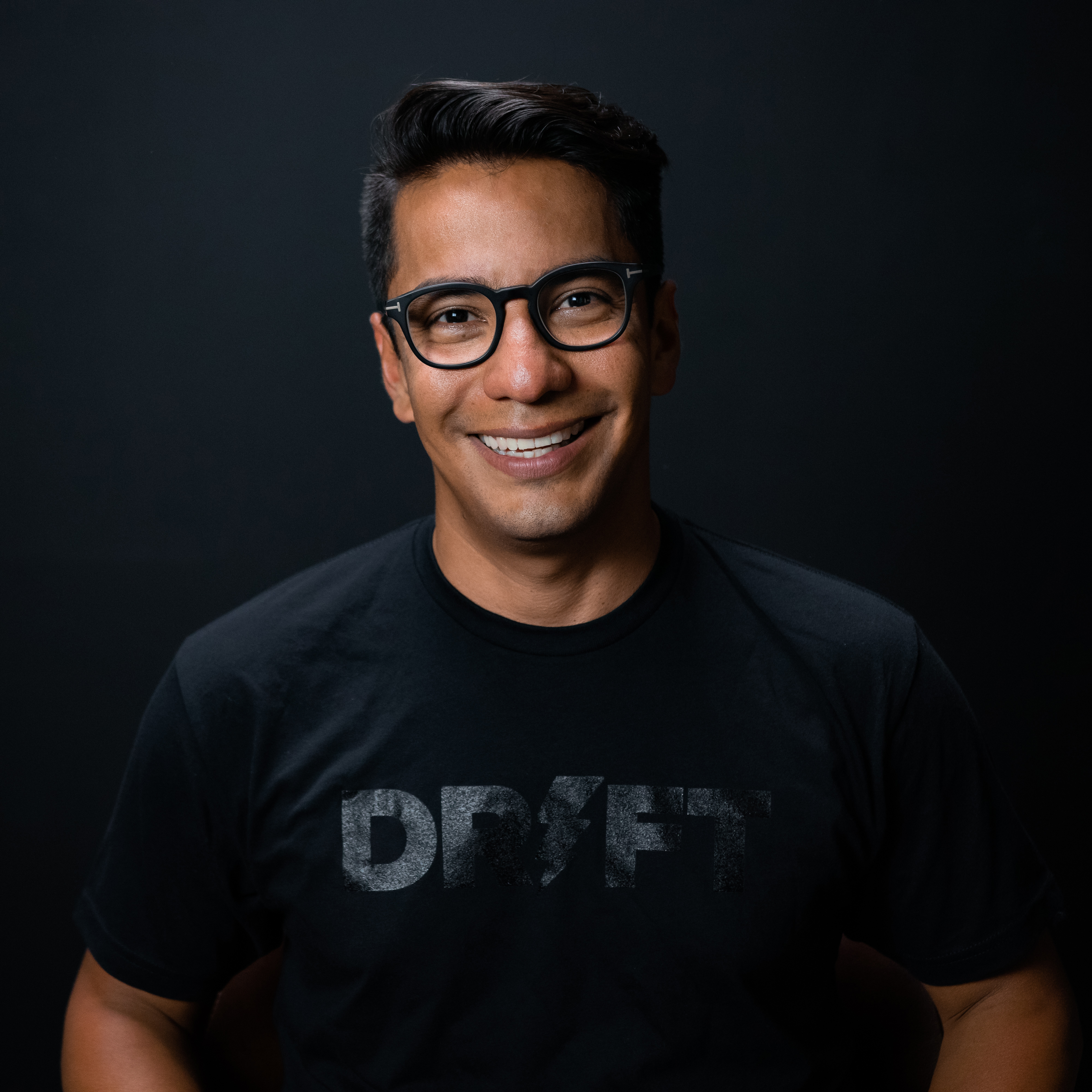
Elias Torres
Today's Guests
